A roller coaster of hype: Can the new regime exorcise the ‘bullshit’ past of The Marketing Group?
The Marketing Group was promising something different for small agencies – be part of a global network but retain your independent spirit. But it soon began to unravel for those who bought into the vision of entrepreneurial collective strength. The share price collapsed, the acquisition of Australian agencies fell through and performance suffered as controversy swirled around the business. Steve Jones looks at the rise and fall of The Marketing Group and how the new management are attempting to rebuild confidence in the business.
When three Australian agencies were named as the latest acquisitions for The Marketing Group, it seemed destined to elevate the young company to new heights.
That was certainly the expectation of management who proudly announced its “largest deal to date” last November, five months after listing on the First North stock exchange, a little-known secondary NASDAQ market in Stockholm.
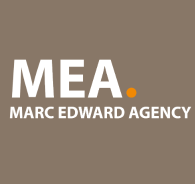 The apparently acquired agencies – Brisbane-based Khemistry, and Sydney firms Mark Edward Agency and McCorkell & Associates – would bring TMG’s agency portfolio to 23 and swell its Australian number to five.
The apparently acquired agencies – Brisbane-based Khemistry, and Sydney firms Mark Edward Agency and McCorkell & Associates – would bring TMG’s agency portfolio to 23 and swell its Australian number to five.
Already in its Australian ranks were Channelzero, acquired by TMG in August, and The Lead Generation Company, which had become its first local acquisition just three weeks after the June IPO.
What began as a collection of three Singaporean and one UK agency was expanding into a global network, with Australia a key growth market.
But it soon began to unravel for its ambitious management team, made up largely of executives from UK private equity firm Unity Group, the backers of TMG.
Since listing in early June, TMG’s share price has soared from €1 to a remarkable €9 on the market’s close on August 1, briefly giving it a market capitalisation of €257m (A$380m).
Its number of subsidiaries had also rapidly expanded, from the initial four to 17, in just 90 days.
Despite the breakneck speed of growth, Unity Group European president Toby Street had, in September, confidently told Swedish investors that TMG had no plans to slow its acquisition strategy.
“We have been questioned….as to whether we can keep up this pace and the answer of course is that we wouldn’t have made the statements that we have….unless we could deliver,” Street insisted. “A company that delivers on its promise is probably a fairly rare thing in the world but we plan to ensure that this is our norm.”
Yet even as he spoke, TMG’s star was fading. In the six weeks since the stock hit the €9 high, the price had dipped sharply amid some heavy trading.
Street conceded there had been “a period of people taking profits” while others “were a little bit fearful [and asking] is this a bit of a flash in the pan”.
Fear not, Street stressed, “we are here for the long run”.
Just four months later, Street had been proven spectacularly wrong on pretty much all counts.
Far from being around long term, he and fellow Unity Group board members of TMG had been replaced, the Australian deals had collapsed, investor and market trust had evaporated and the share price had sunk to below €0.40c.
As for the much-heralded acquisition strategy, that had not so much slowed as ground to a shuddering halt.
The beginnings
The Marketing Group started life with the four “founding” agencies Unity Group had acquired in the first half of 2016: Singapore-based Black Marketing, Creative Insurgence and One9ninety, and UK-based Nice and Polite.
All had been acquired via a share swap, with the business owners issued shares in the new holding company, the majority of which – as with all subsequent acquisitions – were locked in for 12 months.
All the founding agencies had been sold a vision of entrepreneurial collective greatness by Unity Group founder and chairman Jeremy Harbour, a sharp, self-styled entrepreneurial “mergers and acquisitions expert” who, in his own words, had occasionally adopted “jiggery-pokery” to get deals across the line.
After leaving school at 15, Harbour, a Brit, began his career in the traditional manner of entrepreneurs by investing what he described as “blood, sweat and years” into various enterprises.
But his approach switched dramatically after offers to buy his then company were based on “jam tomorrow” rather than upfront cash payments.
“I figured I could do the same thing,” he explained in a YouTube interview with his Unity Group business partner Callum Laing. “So after kissing a lot of frogs I bought a 13-year-old telco company but managed to buy it without using any capital upfront.
“It took quite a bit of jiggery-pokery but I got the deal done and we grew by a year’s worth of revenue in an afternoon.
“I had a bit of an epiphany. You don’t have to run a marathon, you just run the last 10 yards and you still get the prize.”
Thus began Harbour’s wheeling and dealing. He has struck 30 deals since then, the purchase of a hotel in Bali and a health club and spa among them.
“I got so excited at my ability to buy businesses without using cash I bought all sorts of things,” he said. “I describe myself as being sector agnostic. I will literally buy anything.”
Driven by this sector-agnostic approach and his thirst for new opportunities, Harbour eventually turned his attention to the marketing industry and formed The Marketing Group.
Adopting the barely recognised term ‘agglomeration’ – which effectively means a “mass or collection of things” (one online dictionary suggests it simply means a “jumbled mess”) – Harbour and his Unity colleagues drew up a lofty ambition to build an entrepreneurial version of the traditional holding group.
While benefitting from being part of a network, it would be a structure that enabled its agency subsidiaries to retain their autonomy and independent spirit rather than be controlled and suffocated by a bureaucratic head office.
In an interview with Mumbrella Asia in November, Laing, who also had little or no first-hand knowledge of the marketing sector, dismissed WPP boss Sir Martin Sorrell as merely an “accountant” who was “trying to tell entrepreneurs how to run their business”.
“To be fair, Martin Sorrell is an accountant who’s done very well with that model,” Laing said of the man and company which has a market capitalisation of more than 20b GBP.
It was a remark met with derision is some quarters.
In the same interview, Laing said TMG, with 17 agencies at the time, was aiming for 30 by Christmas and would continue its strategy of only acquiring business which were debt free and generating profits of S$500,000 (A$462,000). It would not be the last time TMG over promised and under delivered.
TMG’s rapid growth
Within three weeks of listing, TMG had acquired its first Australian agency, Melbourne-based The Lead Generation Company (TLGC), along with a small New Zealand-based media agency, Rainmakers. Those acquisitions alone were forecast to increase EBITDA by 50% to €2.35m, with TLGC contributing €607,227.

Deals followed on a regular basis, and investor expectations kept rising.
Sydney agency Channelzero was acquired in August with Singaporean, UK and US agencies also snapped up in remarkably quick succession.
Then, in November, TMG announced the deal for the three Australian agencies that would swell group EDITDA profits by another €4.5m, to around €16m.

Even though the share price by now was declining – to a more realistic valuation – TMG and its aggressively acquisitive agglomeration model seemed to be going places.
But the growth failed to disguise growing unrest.
Notwithstanding the vagaries of the stock market and profit-seeking retail investors who cashed in when the share price soared, general market and investor confidence was rapidly evaporating. With no institutional investors to provide stability, it led to intensifying sell-side pressure which further drove down the share price.
Declining market confidence
Aside from suspicions over the business model – it was suggested by observers the structure resembled a murky smoke and mirrors pyramid scheme that would reward only those who exited first – TMG faced accusations it was miscommunicating information to the market.
The company had to issue a correction to its third quarter financial results after an initial version included figures from UK-based Astute, even though that deal had not been legally completed.
“They do insist we present everything as the glass is half empty rather than the glass being half full,” Harbour said during an investor call in mid-November. At market close that day, 20% had been wiped off the share price.
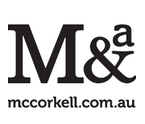 In late January, Harbour was then forced to concede the acquisition of Marc Edward Agency and McCorkell & Associates, along with Astute had, in fact, fallen through.
In late January, Harbour was then forced to concede the acquisition of Marc Edward Agency and McCorkell & Associates, along with Astute had, in fact, fallen through.
“The decrease in share price between the time the offers were made and the time of completion materially changed the deal on offer,” a statement said.
In further developments which undermined trust and confidence, the acquisitions of Khemistry, and two other agencies had also failed to complete, and remain in limbo.
In addition to the acquisition U-turns, doubts emerged over the financial stability of the agencies within the group, despite the understanding that TMG was only buying established, debt-free businesses with profits of at least S$500,000. The questions intensified given the lacklustre performance of some subsidiaries immediately post-acquisition.
Excitable EBITDA and pro-forma expectations announced to the market during its rapid acquisition phase were regarded as optimistic, while the development of a network which, collectively, could punch above its weight and pitch for global business had also failed to materialise in any meaningful way.
“Jeremy and Callum had this idea that if you work on velocity and keep pumping in agencies then down the line the network effect takes care of itself,” one TMG agency said. “It wasn’t particularly strategic.”
In the three months to March, EBITDA has fallen from €614,000 (A$908,000) in the fourth quarter of 2016, to just €125,000 (A$185,000) with an EBITDA margin of less than 2%. The blame was firmly pointed at a “small number” of under-performing agencies.
One acquisition target approached by Harbour and Laing told Mumbrella he became increasingly uneasy about the model and of the calibre of some of the group’s agencies.
“Conceptually when they discussed it with me I thought it was an interesting idea but the more they opened their mouths the more I questioned it,” he said. “They thought they could take over the world when it came to marketing but they had never even worked in the industry.
“There were also one or two companies in there dragging down some good ones. And what happens after 12 months when the first agency owners started exiting the business? The share price would drop. It had warts all over it.”
He added: “I know some of the companies in TMG and the shares they took in lieu of cash payments are now not worth the paper they are written on. It’s a sad story.
“There was so much bullshit during that period you couldn’t jump over it. You didn’t know what to believe. If I’d have listened to Jeremy Harbour and Callum Laing I’d be sitting in the same hole as the other agency owners.”
Come March, faced with a share price dipping below €1 for the first time and a financial performance that failed to match the hype, it emerged that Harbour and the other Unity board directors had gone.
The following month, the remaining four board members also stepped down, replaced with a new executive team led by experienced marketing executive Adam Graham, who had joined the previous November.
It is understood Graham had reservations within weeks of joining about Harbour’s dual roles with his Unity Group private equity firm and that of TMG.
“It was suggested to Jeremy he should step down as chairman because there was a potential conflict of interest,” one source said. “The same people who controlled Unity were on the board of TMG and that is where the lines got blurred. To his credit, Jeremy stepped down as did the rest of the board.”
Another source with close links to the company said Harbour’s over enthusiasm was to blame rather than any deliberate exaggeration of its position. Among Harbour’s claims to the market was that TMG was the “fastest-growing marketing services company in history”.
“There were a lot of statements that inflated expectations and that is kind of breaking the cardinal rules of running a public company. You don’t make forward-looking statements, you don’t throw forecasts out into the market will nilly, you don’t announce deals before they’re done.
“The first three months was a roller coaster of hype and it was only a matter of time before those chickens come home to roost. But I think it was over exuberance. They were optimistic people and maybe things escalated.”
Smoke and mirrors?
Harbour told Mumbrella it was clear the company needed a “reset” but rejected any wrong-doing and claimed he was “millions” out of pocket.
He faced regular criticism on Twitter, with one spectacularly ill-conceived manoeuvre in particular raising questions. That saw TMG deposit 3m shares with a lender in exchange for €16m, money that would provide a new cash component in acquisitions.
But according to Harbour, only €2.2m was received before investigations into the apparent short-selling of shares, heavily regulated in Sweden, discovered the lender had, allegedly, sold all 3m shares.
Asked if he had personally done financially well out of TMG, Harbour said: “I put my money where my mouth is and every word I have said I have backed with my own personal cash.
“I have lost millions, my company Unity Group has lost millions and my friends and family have lost millions so as it stands, no, we are very much financially overdrawn on the transaction.”
He claimed he and other Unity directors took no salary or expenses and even waived travel and accommodation costs at TMG’s summits in New York and Singapore.
“Not one cent,” he said. “We invested heavily and took a long-term view. It’s only a year old. It’s a great business and we know the subsidiaries are good companies.
“I think anyone who sold Apple, Amazon or Netflix shares in the first year would probably look back now and regret it, so I don’t think we can judge the business on its first year. I would much rather judge it on the next three, five or six years. Over that timeframe hopefully it will transpire to be a great investment for me, my friends and family and other investors who have backed us.”
Harbour, who said confidentiality agreements with TMG prevented him from discussing the past in any detail, was unable to quantify the exact extent of his losses but said there is “no single biggest investor in TMG than me”.
He conceded it was “quite possible” investors had lost their trust and faith in his leadership but insisted any suggestion the structure was set up to benefit a handful of people was wide of the mark.
“When the share price was in decline, people started to look at where the problems might be and human beings love to find patterns where patterns don’t exist. People started digging around share registers but by doing this you can add two and two and get six.
“But I do understand. I have lost huge amounts of money, lots of people have, and I understand the need to clutch at straws.
“The key thing to remember is that that we are governed by NASDAQ and the Financial Conduct Authority in the UK. We have to report every transaction to the FCA so all the governance is in place to protect against all that kind of stuff. There is no lack of transparency.”
He continued: “Markets are fickle. There was a lot of demand in the first three months and people played on the momentum. After that, there was more selling than buying and that ultimately impacts the share price.
“People will buy shares when it’s going up and sell when it’s going down so it becomes self-fulfilling.
“I don’t believe, and I think NASDAQ would agree with me, that the share market is manipulable when there are millions and millions worth of Euro traded every day.”
Referring to the 3m shares sold without permission, Harbour claimed legal action against the firm is on-going. He said legal advice prevented him from naming the company.
“We weren’t expecting these shares to be on the open market and clearly it wasn’t helpful when there is an additional sell side,” he said. “I’m dying to name and shame them but we have been advised we can’t publish that name until we have a prosecution against them.”
Far from neglecting the company Harbour said he, and the board, “took all the necessary action to make sure the company has the best possible chance and to protect the long-term value for shareholders”.
“Clearly the share price is a reflection of performance and that has not been healthy. I recognised that it was time for a reset and that the best thing for the shareholders in the long term would be to professionalise the board. I got Adam in, Don [Elgie] came in, there is some really good marketing brains around the table.”
He also dismissed suggestions that some acquisitions were poor-performing agencies, claiming audited accounts proved their profitability.
Asked for his rationale for the venture, Harbour said: “We are in the business of trying to address inequality through the democratisation of wealth. Agglomeration creates value for SMEs and creates meritocratic reward to hard-working entrepreneurs.
“Anything new and disruptive will be criticised but over the long term I think it will answer all critics. So we will keep working tirelessly towards our goals.”
Mumbrella contacted many agencies acquired by TMG – and those whose deals fell through – but they declined to discuss events.
One source described Harbour and Laing as “inspiring” but said confidence in their leadership ebbed away as the share price tanked, acquisitions collapsed and financial targets were missed.
“There does appear to be some grey areas but I don’t believe their intention was to get a bunch of companies together and make a quick dollar. They invested in the company as well,” he said. “I think they were also naïve. When it emerged about the lender dumping 3m shares on the market they were given a dressing down by shareholders at a board meeting in New York.
“It was a shit deal based on a handshake and trust and it turned the tide from ‘Fuck, look at this go’ to ‘Shit, we’re now in defence mode’.
“But overall it did feel entrepreneurial and exciting to be part of something different, and we thought it was a good deal.
“I’d be a liar if I don’t look at the share price and think ‘Well, that’s annoying’. So it’s clearly a long-term investment and what Adam, Glen and the rest of the new board have bought to the table is a proper network. Previously it was a financial vehicle.”
Financial analysts said the company, while clearly overvalued when the share price climbed rapidly, is now undervalued, with a share price somewhere between €1 and €2 a fairer reflection of its worth.
A new dawn
Graham, the former boss of Omnicom’s Weapon7 and an ex-chief executive of the British Interactive Media Association, had joined TMG in late 2016 as CEO as Harbour scrambled to restore confidence.
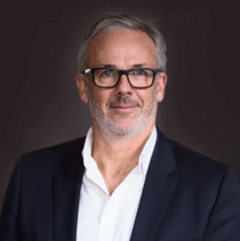
Principal and owner of Third Eye Consultancy, Glen Fraser, has been drafted in as part of a new-look management team
Graham has since drafted in former Havas Media and Possible chief financial officer Mike McElhatton as CFO, the respected founder of insight and communications group Creston, Don Elgie, as executive chairman and Australia-based marketing executive Glen Fraser as non-executive director.
Fraser was CEO of Euro RSCG Australia (which has since rebranded as Havas) from 2002 to 2005, and CEO of Y&R Brands’ Westpac unit The Red House for eight months from late 2007.
In an interview with Mumbrella, Graham distanced himself from the previous regime and revealed the company, while retaining its entrepreneurial focus, was operating in a more “traditional fashion”.
The term ‘agglomeration’ is no longer used, he said, while acquisition targets will be subject to far greater due diligence. Deals will also involve an approximate 75% cash component, with the remainder in shares.
He added that the board’s industry skill set will unlock synergies and collaborative benefits.
“We are no longer following the agglomeration model and we are very keen to create a line in the sand between the past and future,” Graham said. “But what I would say is that none of the guys from Unity are from the marketing industry so in terms of the strategic fit of the agencies, I think that has benefitted from people like myself, Don and Glen. We are working through how we can create synergies and how we can create a competitive dynamic within the group.
“We are a start-up and that is a really important point to make. We are a year old and have got agencies on a number of continents and a strong profitability so, actually, what we have achieved is quite remarkable in a short space of time.
“As with any start up there are teething problems and unforeseen challenges to he addressed. And as a public company you do all that under the glare of shareholder scrutiny.”
Pressed on the past, Graham conceded that “expectations had been mismanaged”.
“It’s very important when running a public company to under promise and over deliver and I think my predecessors got very excited. They are very ambitious and optimistic people and they haven’t run a public company before. As such perhaps expectations were not managed as best they could.
“There had been a lot of hype around the launch in the first few months and piece by piece those threads of narrative started to fray.
“You should not announce a deal until it is absolutely complete. That was the beginning of confidence beginning to wane in the group.”
In the Q1 financial results, Graham reported that a “strong core” of agencies delivered €563,000 EBITDA, but that a “small number” had held back the rest of the group resulting in a dismal return of only €125,000.
Since then, on June 29, the share price plunged to its lowest ever price, €0.37, before rallying in July to close at €0.72 yesterday, giving TMG a market cap of €23m (A$34m).
Graham said “decisive action” is being taken on the weaker agencies with the results of a business review set to be announced at TMG’s second quarter results on August 15.
“We are making good progress with the underperforming agencies and we’ll have that finished by the Q2 results,” he said. “But the point is, I am not afraid to take action against those agencies.”
Future acquisitions will involve a “better level of scrutiny so we are not buying agencies which turn in a poor performance immediately after they have been acquired”.
“We will also be looking to acquire bigger agencies which have a lower risk profile and which contribute more profits to the group and are a complementary fit,” he said.
Despite the negative sentiment that has swirled around the group, Graham insisted he was confident of restoring trust and confidence among investors, existing subsidiaries and potential acquisition targets.
Progress has already been made, he explained. A drive to attract institutional investors who tend to bring stability to a stock – something Unity failed to achieve – is also underway.
“Understandably investors are nervous, they lost trust in the previous chapter, but from all the conversations I have had, they back myself, Don and the new board 100%. They trust us to turn this round, but they are waiting for results.”
He added that potential acquisition targets who were “scared off by the previous incarnation” are back at the table “because they understand the past is the past and because they buy into the new management team and the new model”.
Part of his role will also involve “fostering collaboration, partnerships and synergies” among its portfolio of agencies with the aim of using the collective muscle and PLC balance sheet to pitch for larger accounts.
Australia is a major focus for growth to achieve those aims, he said.
“We are looking to build a network of agencies along the eastern seaboard so those agencies will go from being local agencies who are working with brands in their city, to national agencies working with national brands,” Graham explained. “We will then look to connect that up with the offering in Singapore, San Francisco and London and then we can start talking to global brands.
“I have had a number of conversations with global brands about big chunky accounts. Obviously in order to entice those global brands we need to have a coherent network with a credible offering that can service those accounts.”
What hasn’t changed from Unity Group’s initial vision is that agencies will operate with far greater freedom than they would within traditional holding groups, Graham said.
Having worked for WPP and Omnicom, he told Mumbrella he understands the benefits and frustrations of working for large corporations.
“There are some tried and tested things that work in the large holding groups so you don’t need to reinvent the wheel. But there is absolutely an opportunity for a new breed of network which does not have centralised control and which isn’t hierarchical and bureaucratic.
“One of the things that is tremendously frustrating when you are running a network agency, even if you are doing well there could be a network hire freeze or you need to get approval from New York to give someone a pay rise.
“All of those things slow you down. It’s demotivating if you are micromanaged by someone with a spread sheet.
“What you find is where there are bureaucrats in the system, all they can do is say no. That is their power. It means you can’t respond to clients as you might like and the team gets frustrated.
“With TMG we want to move away from that and give autonomy to the entrepreneurs and empower them to make decisions. As long as you are hitting your numbers I am not going to concern myself with your pay rises and hires.”
Graham said TMG offers an alternative to selling to one of the big holding groups. That, he observed, “often doesn’t end happily”.
“The classic sell is to one of the big six, where you get an earn out and lose control of your business. Through that process often, very often, everything that was good about the agency slowly gets eroded, it gets homogenised.
“Often they take the name down from above the door, move you to a central building. The culture of your business is dramatically changed, the talent starts to walk and the clients start to walk.
“A lot of agency owners don’t want to do that because they love what they do, they love their agencies and have put years of work into it.”
Despite Graham’s upbeat outlook, he recognised that agency owners have been battered by the share price collapse.
But he claimed the “calculated risk” they took by joining the group would reap rewards over time. Furthermore, he said TMG has never positioned itself as an exit strategy for agency owners but the opportunity to grow a network and attract larger clients with fellow entrepreneurs.
“If you wanted to sell shares today every single person would be under water in terms of the value they would get verses the strike price they came in at,” he said.
“But I am very confident we have fixed everything and the Q2 results will be the launch pad for the new chapter.
“If you take a longer view over the next three years, if you back the management team and the new board and if you back the quality agencies we have across the group, I think it is extremely likely that longer-term value will be returned.
“My ambition is absolutely to challenge the big six marketing groups in the fullness of time. But it’s a five-year journey.”
In the frequently asked question section on its website, one of the questions posed is how many companies TMG is looking to acquire.
Showing the bravado of the previous management, the answer states – presumably tongue-in-cheek – that the “market leader has 2,600 subsidiaries so that might be a nice number”.
For the time being though, attention will be firmly focused on the Q2 results later this month.

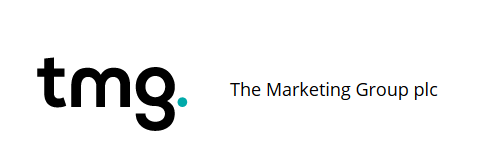


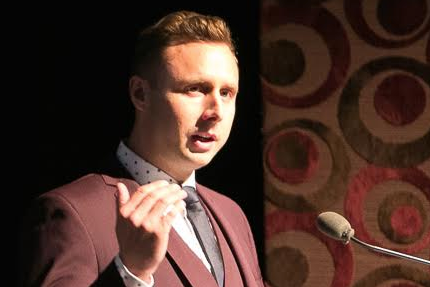

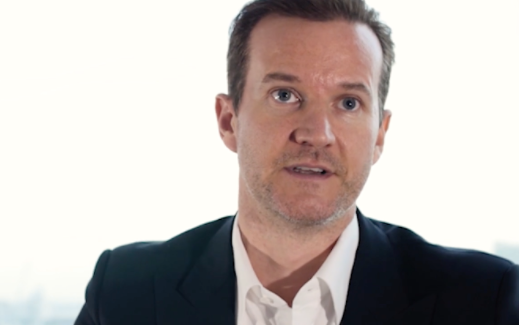
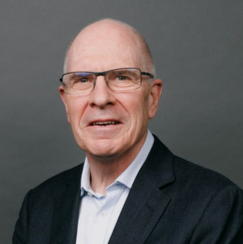
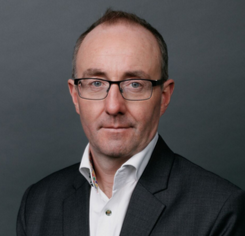

Just too many bad shirts to take this lot seriously
Blue Highway?
Photon?
I’d say same dog, different fleas, but this set up is even whiffier. “You don’t have to run a marathon, you just run the last 10 yards and you still get the prize”? That was the end right there. And all the new heavyweights running a company only capitalised at 23m? That’s an equally bad sign. Stock Recommendation: SELL (yesterday)
You’re bang on @Jeremy, add the Q Group in there as well. As always with these deals, it’s the lawyers and deal-makers who make money on the margins, and retail investors and the guys that sell their businesses in that get punished…
Anytime you have sometime pushing a ‘model’ rather than being a true marketing/advertising person, you’re asking for trouble…
Another cracking piece from Steve Jones. I’m not sure what I like more; the ordered agglomeration of so much detail or the martini-dry wit.
This venture seems flawed, not in it’s ambitions but its strategy to achieve them.
“Harbour and his Unity colleagues drew up a lofty ambition to build an entrepreneurial version of the traditional holding group. While benefitting from being part of a network, it would be a structure that enabled its agency subsidiaries to retain their autonomy and independent spirit rather than be controlled and suffocated by a bureaucratic head office.”
This is totally at odds with the prevailing thematic of the Global Holding companies of consolidation. It is not often that Sir Martin Sorrell, Arthur Sadoun, Yannick Bolloré and global CMO’s like Marc Pritchard all in faultless agreement on anything but on this they are.
Sir Martin Sorrell as recently as January this year was interviewed publicly stating WPP have the wrong model and that the separate independent brands are a material impediment to meeting global companies needs for better integration and if he could move faster to unwind the independence of brands within WPP to allow better integration he would.
Arthur Sadoun from Publicis in his first address to his global team of employees stated, “you are going to hear me saying BUST, BOND & GROW”, Bust the P&L barriers, Bond across agency brands & Grow by winning more business off the back of better integrated client pitches, as part of his Power of One strategy. His most recent attempt towards this strategy is the AI powered new generation intranet called Marcel where Publicis is able to link up not just people qualified to handle a brief, but to find “the ones who are eager to do it.” A young creative in Sao Paulo, he said, would have the opportunity to work on a Super Bowl ad led out of New York. Marcel is already having a positive impact on business, Sadoun claimed.
I wrote a piece on this recently and it has the video interviews I mention above plus others.
https://www.linkedin.com/pulse/kiss-punch-justin-cannon
Another good read on the nature of the broader holding company thematic of consolidation is in adage.
http://adage.com/article/print.....re/303798/
Great read and important work Steve.